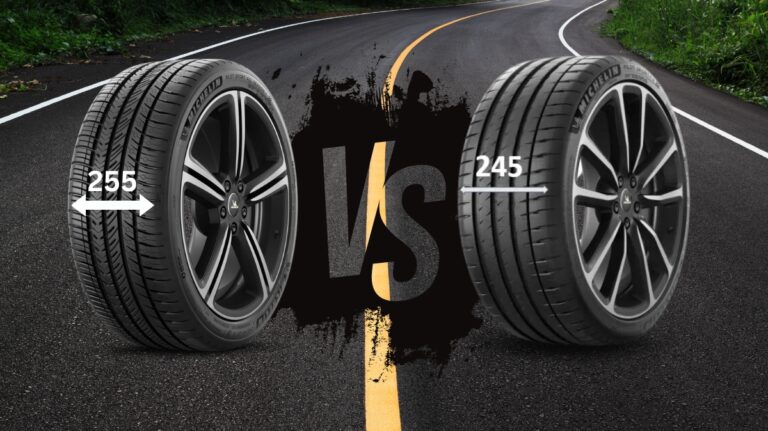Want to know the difference between 245 and 255 tires? Looking for the best tire size to enhance your car’s road grip? You’ve come to the right spot.
I’ll explain the key features of these two tire sizes. By the end of this guide, you’ll know which tire size will suit your vehicle’s needs best. Let’s dive into the details of 245 and 255 tires now.




And Pro tip: Always consider the terrain and weather conditions of your regular routes when choosing a tire size.
What Kind Do I Need?
Choosing the right tire involves more than just picking a width. While the 245 and 255 tires differ in width—the 255 is slightly wider—they also have different speed tolerances. These variations make each type more suited for specific driving conditions and vehicles.
Other key factors to consider include aspect ratio, speed rating, and rim diameter. These elements work together to affect your tire’s performance.
For example, 245 and 255 tires work well for everyday cars and can handle medium loads easily. However, if you drive a larger truck, you might lean towards sizes like 275 or 285. SUVs, in contrast, usually go for tire sizes ranging from 215 to 235, based on their particular needs.
Choosing the right size also improves your vehicle’s braking efficiency. So, make sure you select your tires carefully.
Features of 245 Tires
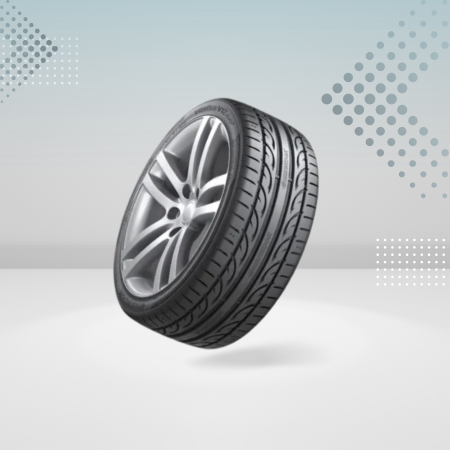
- Rim Width: 7.5 Inches
- Load Range: G
- Tread Depth: 19
- Diameter: 37.4 Inches
- Revs Per Mile: 555
- Speed Rating: 81 miles per hour
Tread Life: The 245 tires offer long-lasting tread life. Most users find that these tires last for at least 40,000 miles before needing a replacement.
Grip: These tires excel in grip, both on wet and dry roads. They use rubber compounds and tread patterns that hold onto the road well. You’ll feel confident while cornering or driving in the rain.
Fuel Efficiency: You’ll notice a moderate boost in fuel efficiency. The tire’s design cuts down on rolling resistance, which helps your car use less fuel.
Noise: These tires perform well in the noise department. They offer a quieter ride compared to budget options, making long drives more comfortable.
Price: The 245 tires fall in the mid-range category in terms of pricing. They’re not the cheapest option, but you get good value for your money.
Off-Roading: If you frequently drive on unpaved roads, these might not be the best choice. They focus more on on-road performance.
Snow and Ice Performance: While they’re okay in light snow, these tires are not ideal for heavy winter conditions. If you live in a snowy region, you may need to switch to winter tires.
Bottom Line: The 245 tires offer a balanced performance for everyday driving. They’re strong in tread life, grip, and noise reduction. But they’re not specialized for off-roading or heavy winter conditions. Overall, they’re a solid option for most drivers looking for reliability and safety.
- Good fuel mileage
- Economical
- Great for everyday use
- Less handling
- Low rolling resistance
Features of 255 Tires
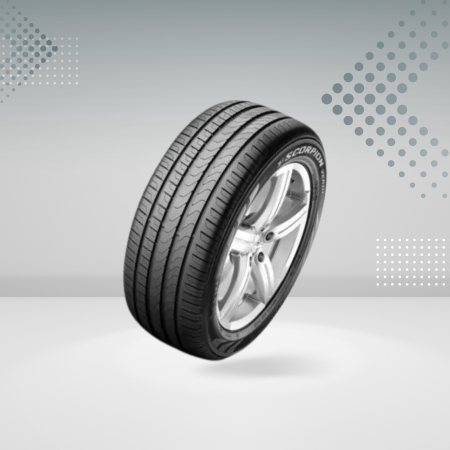
- Rim Width: 7.5 Inches
- Load Range: H
- Tread Depth: 18
- Diameter: 36.7 Inches
- Revs Per Mile: 566
- Speed Rating: 81 miles per hour
255 tires refer to a specific tire width, measured in millimeters. If you’re considering 255-width tires for your vehicle, here are some key features to keep in mind:
Better Grip: Wider tires like the 255s generally provide better grip. This improves traction, especially when making turns or driving on wet roads.
Improved Handling: A wider tire can enhance your car’s handling. You’ll notice that your car is more stable and responsive to steering inputs.
Increased Load Capacity: Wider tires can often handle more weight. If you have a heavier vehicle or plan to tow, 255 tires could be beneficial.
Fuel Efficiency: These tires may lower your fuel efficiency slightly. Wider tires can create more rolling resistance, using more fuel to move the car.
Braking: Better surface contact usually leads to improved braking performance. You might experience shorter stopping distances with these tires.
Noise and Comfort: Wider tires can sometimes produce more road noise. However, they can also make the ride more comfortable by better absorbing road imperfections.
Tire Wear: Expect more even tire wear. However, improper alignment can cause faster wear on the inside or outside edges.
Aesthetics: Many people find that wider tires have a more aggressive, sporty look that enhances the overall appearance of the vehicle.
Price: 255 tires are often more expensive than their narrower counterparts. The increased material and technology involved can drive up the price.
Compatibility: Make sure your vehicle can accommodate the 255-width tires. Not all cars can, and using the wrong size can lead to safety issues.
- Better handling
- Great while fast driving
- Better look for the car
- Smoother ride
- More fuel consumption
Difference Between 245 and 255
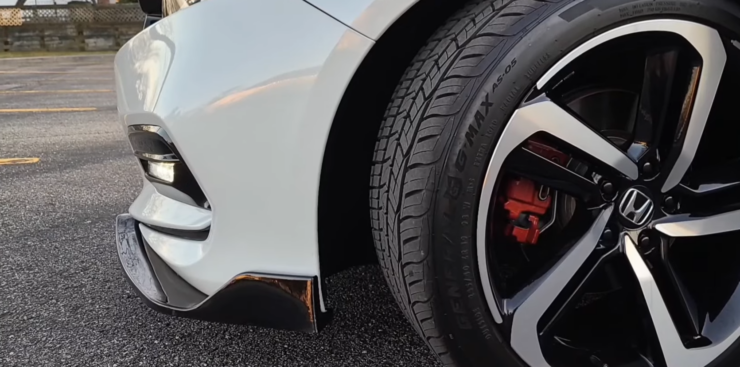
Navigating the world of tire sizes can be a bit tricky, especially when the sizes are so close, like the 245 and 255. Let’s break down the distinctions between these two and understand how they can influence your driving experience.
| Features | 245 mm tires | 255 mm tires |
|---|---|---|
| Weight | 27 lbs | 47 lbs |
| Rim Size | 18 inches | 20 inches |
| Aspect Ratio | 45 | 55 |
| Load Capacity | 1764 lbs | 1819 lbs |
| Sidewall Height | 7.23 inches | 7.03 inches |
| Diameter | 30.47 inches | 30.06 inches |
| Speed Rating | T | V |
| Construction | Radical | Radical |
| Tread Depth | 10 32nds | 10 32nds |
Weight
The weight difference between the 245 and 255 is quite significant. With the 245 weighing around 27 lbs and the 255 tipping the scales at 47 lbs, there’s a 20 lbs difference between them. But what does this mean for you?
Well, the weight plays a pivotal role in how your car performs. Heavier tires can offer a better grip, especially on wet or slippery roads. However, if your car is on the lighter side, mounting it with heavy tires can hinder its acceleration.
Always consider the weight of your vehicle when choosing tires. A mismatch can lead to increased fuel consumption and a less smooth ride.
Gas Mileage
It’s no secret that the weight of your tires can influence your car’s fuel efficiency. With heavier tires, like the 255, you might notice a slight dip in your gas mileage, possibly by 1-2 miles.
This is because heavier they have a higher rolling resistance, demanding more power from your engine and, consequently, more fuel.
If fuel economy for your engine’s optimal performance is a top priority for you, the 245 might be the way to go.
Car Load
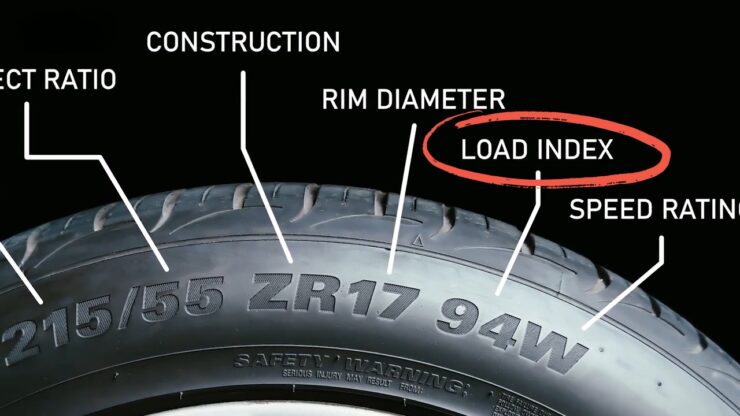
Every tire comes with a recommended load capacity, and it’s crucial to adhere to this. The 245 can support up to 850 kgs (1,874 lbs), while the 255 can handle a slightly heftier 900 kgs (1,984 lbs).
Remember, mounting your vehicle with tires that can’t support its weight can lead to poor performance and even safety risks. Always check the load index on the tire’s sidewall to ensure you’re making the right choice.
Stability
Stability is paramount, especially if you’re someone who enjoys the thrill of speed. Larger tires generally offer better stability, making your rides safer. They also enhance the vehicle’s stopping power, which is crucial when driving at high speeds or on challenging terrains.
While the stability difference between the 245 and 255 isn’t monumental, if you’re looking for that extra bit of assurance on the road, the 255 might be your best bet.
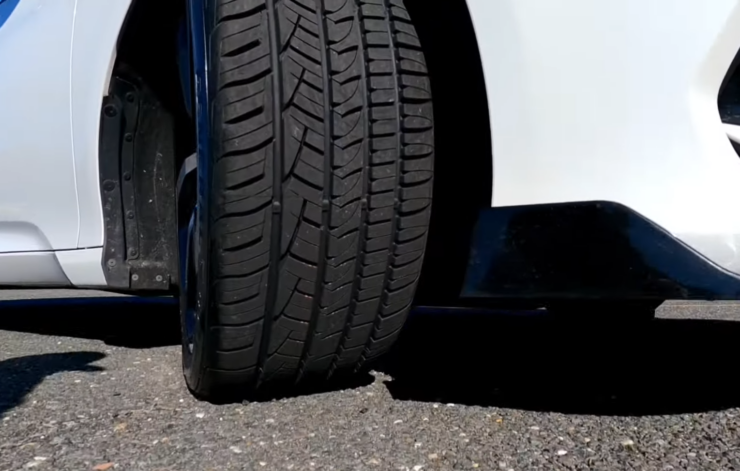
Maneuverability
Maneuverability is all about how well your car responds to your commands, especially during turns. Tires that cover a larger surface area of the road tend to offer better maneuverability.
This means that while the 245 are no slouch, the 255, with their slightly larger footprint, might give you a slight edge when it comes to handling, especially on curves.
Frequently Asked Questions
Are 245’s interchangeable with 255’s?
You can use 245s instead of 245’s, as they are similar tire sizes with slight differences. However, upgrading your tire size might reduce your gas mileage. But it will enhance your vehicle’s look.
However, it is not recommended to mix different tire sizes on your vehicle simultaneously, as it can affect the overall performance and safety of the vehicle.
Can I Put Wider Tires On My Stock Rims?
Yes, you can put almost 20 millimeters wider tires on the stock rims. If you want wider, you will have to check the specifications of your rims.
What is the difference between 245’s and 255’s in terms of price?
The price depends on various factors such as brand, construction, size, etc. In general, 255’s are slightly more expensive than 245’s due to their larger size and load-carrying capacity.
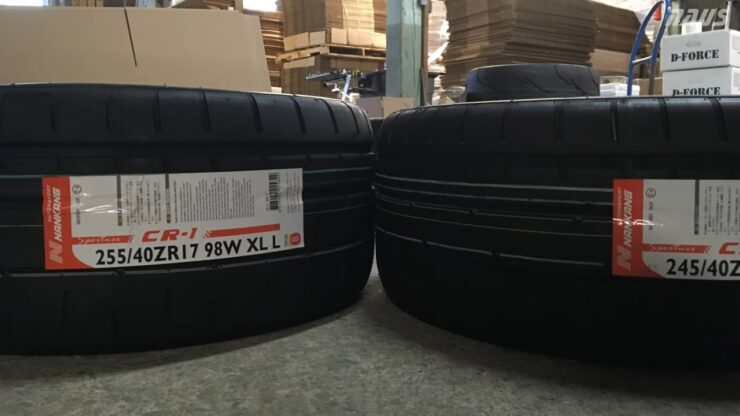
How often should I replace my tires?
The lifespan depends on various factors such as usage, driving conditions, and maintenance. It is recommended to replace them every 6 years, even if they appear to be in good condition. Additionally, it is important to regularly check the tire pressure and tread depth to ensure optimal performance and safety.
What is the difference between all-season and summer tires?
All-season tires are designed to provide good performance in a variety of weather conditions, including dry, wet, and light snow. Summer tires, on the other hand, are designed specifically for warm weather conditions and provide superior grip and handling on dry roads. It is important to choose the right type of tire based on your driving conditions and needs.
What is the difference between radial and bias-ply tires?
Radial have a construction that features layers of steel or polyester cords that run perpendicular to the tread, providing better stability and handling. Bias-ply , on the other hand, have a construction that features layers of cords that run at an angle to the tread, providing a smoother ride but less stability and handling. Radial are more common in modern vehicles due to their superior performance and durability.
Conclusion
Choosing between the 245 and 255 tire sizes might seem like a minor decision, but as we’ve explored, even such subtle differences can have a notable impact on your driving experience. From fuel efficiency to stability and maneuverability, each tire size offers its unique advantages.
I’d advise you to weigh these differences against your vehicle’s specifications and your personal driving habits. Remember, the right tire not only enhances performance but also ensures safety on the road.
So, take your time, consider the facts, and make a choice that ensures both a smooth ride and peace of mind. Happy driving!
Related Posts:
- Difference Between 225 and 235 Tires - Easily Find…
- Difference Between 235 and 245 Tires - Best Suited…
- Difference Between 275 and 285 Tires in 2024 -…
- Difference Between 235 and 255 Tires in 2024 -…
- Difference Between 255 and 265 Tires - Which One…
- Difference Between 285 and 305 Tires - Best One to Choose

